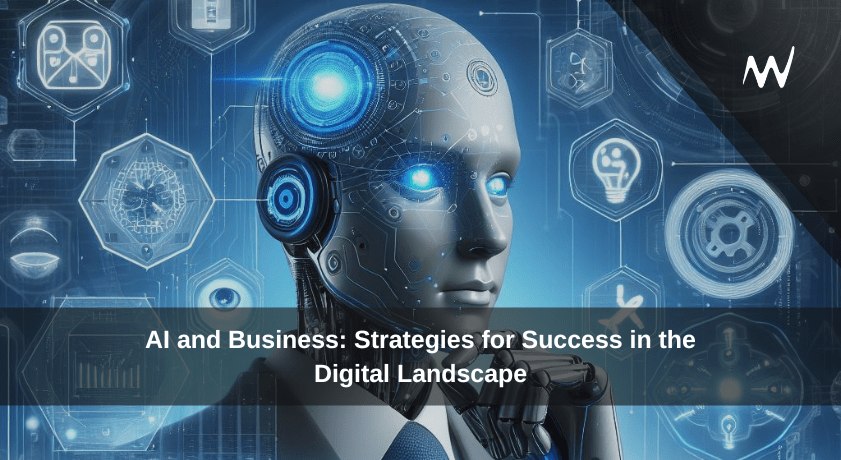AI and Business: Strategies for Success in the Digital Landscape

Introduction:
In the dynamic landscape of today’s business world, the buzz around Artificial Intelligence (AI) is hard to ignore. But is investing in AI, especially in the realm of Business Strategy, a worthwhile venture? This comprehensive guide aims to unravel the intricacies of AI’s role in revolutionizing contemporary Business Strategies, shedding light on considerations before adopting it as a long-term solution.
Understanding Business Strategy:
At its core, Business Strategy serves as a roadmap outlining a company’s vision, mission, and goals. This guide emphasizes the importance of a well-crafted strategy that aligns efforts, ensuring resources are harmonized to achieve overarching objectives.
Development of an AI-Based Business Model:
Delving deeper into the integration of AI in business management involves crucial steps:
- Business Objectives: Clearly define specific goals for AI implementation, aligning them with customer needs, market trends, and competition. Develop a plan with timelines, budgets, and key performance indicators.
- Selecting Tech: Identify the right technologies, such as machine learning (ML) and natural language processing (NLP), aligning with business objectives, processes, and budgets.
- Management System: Develop a detailed implementation plan, encompassing platforms, data systems, and employee training, ensuring effective utilization of AI technology in business operations.
- Progress Monitoring: Continually assess the benefits of AI implementation, modifying the process as needed for positive outcomes. Regular evaluations track progress, identify issues, and facilitate informed decisions.
- Control Evaluation: Regularly research AI-based implementations, relying on data and analytics to measure key performance indicators (KPIs) like customer satisfaction, efficiency, and cost savings.
How to Implement AI in Business Planning:
Strategic steps for implementing AI in business processes:
- Collect Data: Gather and analyze data from various sources, utilizing AI to process large amounts and identify patterns and insights.
- Predictive Analytics: Utilize AI algorithms and machine learning models to predict future trends, market demand, and consumer preferences for informed decision-making.
- Automate Production Processes: Integrate AI-powered automation tools to streamline business processes, enhancing efficiency and reducing human error.
- Create a User-Friendly Experience: Use AI to analyze customer data and provide personalized recommendations, creating a customized customer experience.
- AI-Driven Decision-Making: Employ AI algorithms to support decision-making processes, providing valuable insights and recommendations.
- Analysis and Efficiency: Continuously monitor business metrics to identify gaps, detect fraud, and make necessary adjustments for improved results.
Applications of AI in Business Strategies:
AI applications across various domains, including process automation, predictive research, enhanced security, improved decision-making, enhanced personalization, and customer service.
What to Avoid in AI Business Strategies:
Key considerations to minimize risks:
- Lack of preparation
- Underestimation of data
- Improved AI optimization
- Use of outdated technology
- Ethical issues
- Insufficient resources
Why AI is Crucial for Business Strategy:
AI enhances productivity, efficiency, and data utilization, enabling organizations to achieve better customer experiences, make faster decisions, reduce costs, and discover hidden insights from data.
Final Thoughts:
As smart products become ubiquitous in business, leveraging AI is essential for remaining competitive and relevant. With the right knowledge and tools, companies of all sizes and sectors can utilize AI to unlock the full potential of their business strategies. Embrace the power of AI today for a smarter, more efficient tomorrow.
To learn more, talk to our experts today. Book your free consultation now!
You may also connect with us by mail at info@wrinom.com.
